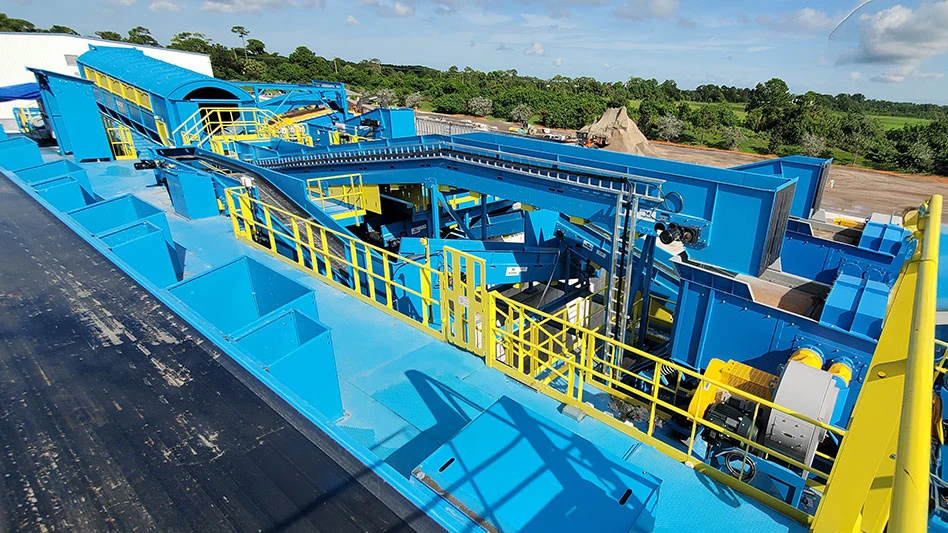Fruit of the Loom, Bowling Green, Ky., says it has committed to ensuring that all of its leftover fabric cutting scrap will be recycled into new products. The 150-year-old producer of apparel has announced plans to work with Martex Fiber Southern Corp., Spartanburg S.C., to ensure that its textile fabric scrap streams are recycled.
According to a news release issued by Martex Fiber, Fruit of the Loom’s United States and Central American manufacturing plants “will make sure that their textile fabric waste is being put to its best use without negatively impacting the environment.”
Martex Fiber bills itself as “the largest vertical processor of its kind, offering an in-house capacity to re-fiberize fabric waste and make raw fiber, which is then used in fill products, non-woven or spinning applications.” The company also converts recycled cotton fiber into yarn at its Jimtex Yarns operation in Lincolnton, Ga.
“While we probably could have received more for single items on our waste list, selling all the waste to one vendor gives us the ultimate control over what happens after it leaves our factory,” says Ted Goolesby of Fruit of the Loom. “Martex Fiber has been a responsible partner of ours for many years. We appreciate their efforts to explore new markets for textile waste and together our efforts have led to many innovative materials. Some of these waste-based fiber products have been used to insulate cars, fill mattresses or even go back into making new apparel fabrics.”
Jimmy Jarrett of Martex Fiber, who manages the contract with Fruit of the Loom, remarks, “For years, Fruit of the Loom has been incredibly forward-thinking and ecologically responsible. Even before it was fashionable to ‘be green,’ Fruit of the Loom was conscious about waste reduction and worked to manage its waste most effectively.”
Jarrett says he is especially proud of the Martex Fiber Jimtex Yarns facility in Georgia. “At Jimtex, we take waste from cut and sew operations—like Fruit of the Loom’s T-shirt and underwear cuttings—and convert it back into a first-quality cotton blend yarn. The possibility for large scale apparel producers to actually take their own waste and have it processed back into yarn and then back into finished product is now a reality. It is very exciting,” says Jarrett.
More information on Martex Fiber can be found at www.martexfiber.com.
Latest from Recycling Today
- Greenwave raises revenue but loses money in Q2 2025
- Recycled steel prices hold steady
- EY says India’s need for scrap imports will continue
- Coming full circle
- Amcor, DCM introduce fertilizer packaging with 35 percent recycled content
- Comstock Metals gets closer to commissioning commercial-scale solar panel recycling facility
- Washington selects Circular Action Alliance as PRO
- Smurfit Westrock expands in Latin America





